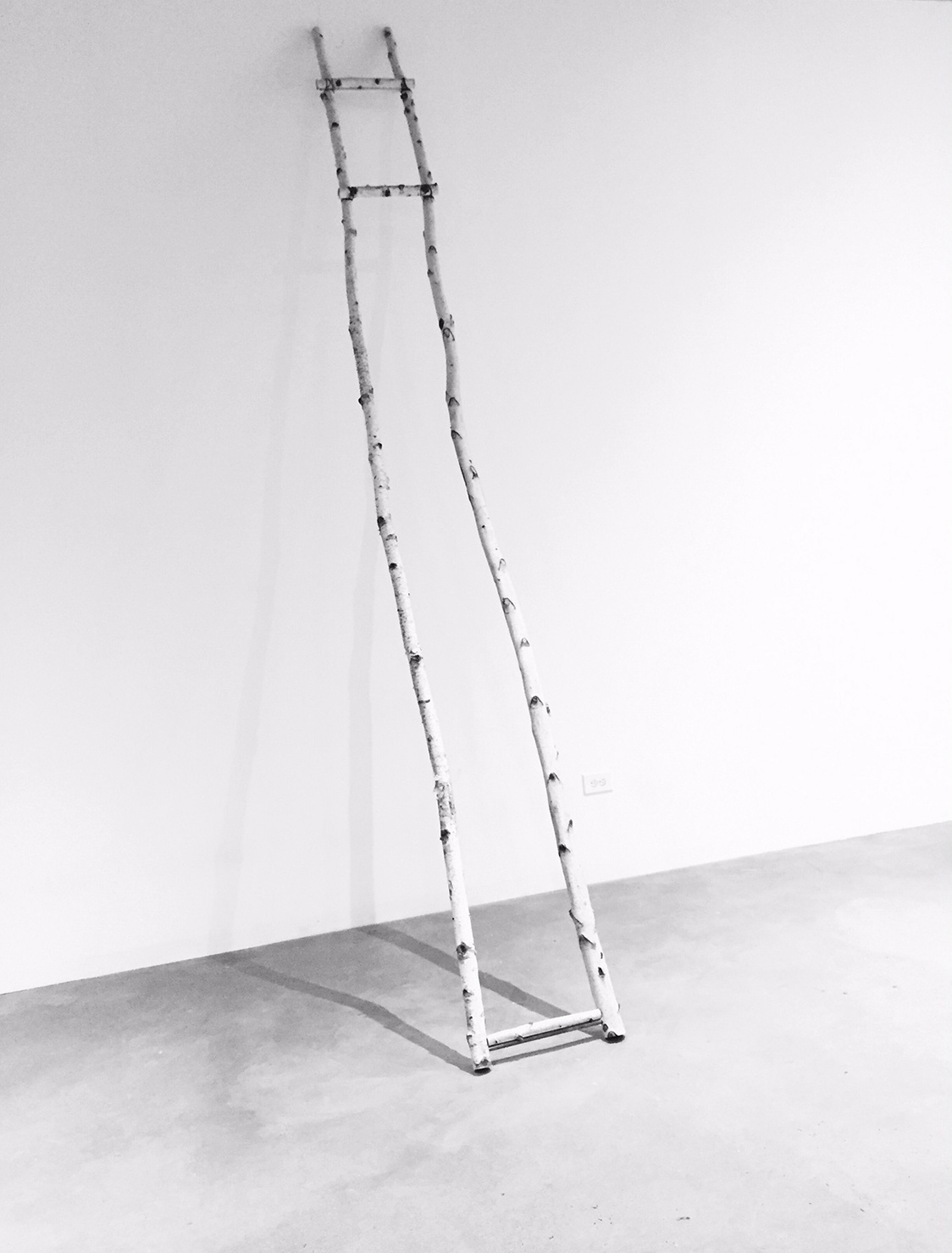The mirror is a window.
It offers a glimpse
Of where we are from
But cannot return.
We are all travelers
On this endless road
Condemned to roam
Without repose.
Olu Oguibe’s poem “Conversation,” excerpted above, engages an imaginary individual on the meaning of personhood, nation, wanderlust, and eternal damnation. Over a multidimensional art career that spans nearly three decades, Oguibe, born in Nigeria in 1964, intersects the personal with the collective in his writings and paintings; he creates poignant narratives of which the human condition is the central leitmotif. He acts as a seer, a troubled recluse, or a confident bohemian at home in a perilous world.
One of Oguibe’s earliest pieces, the watercolor The Present Is a Dangerous Place to Live (1987), presents two individuals deeply engaged in discussion and standing before a deep void. The metaphor is not lost. The work is as relevant today as it was in the 1980s when it was painted, and it mirrors a recurring theme in Oguibe’s practice—its renewed mandate appears in the artist’s recent and ongoing work. Figures lie in repose, weathered by the precarity of their last moments as objects with active social lives, and by what they now represent: corpses. It is a sobering reflection of the unceasing cycle of violence fueled by economic special interests and political schizophrenia that attends our current reality. Body bags, body counts, and military parades in the spirit of nationalism or in pursuit of dogma have become a permanent feature in an abrasive news cycle.
Though the Igbo system of thought and existential principles play a critical role in Oguibe’s creative endeavors, dictating his approach to conceptualism, abstraction, and the form of the art object, the vital force of his art is his experience as a child in Biafra during the Nigerian Civil War in the late 1960s. This monumental human tragedy has shaped his social self. We see Biafra today as refugees cross into Europe from the many trouble spots in the Middle East and Africa. We see the pains of Biafra as humanity drowns in huge numbers in the high seas approaching the Strait of Gibraltar. In their cold repose, the figures no longer roam. They are monuments of our time; asking us to chew on our Anthropocene, and to contemplate the many disastrous events in history with enduring consequences. The past is the mirror of the present.
—Ugochukwu-Smooth Nzewi


